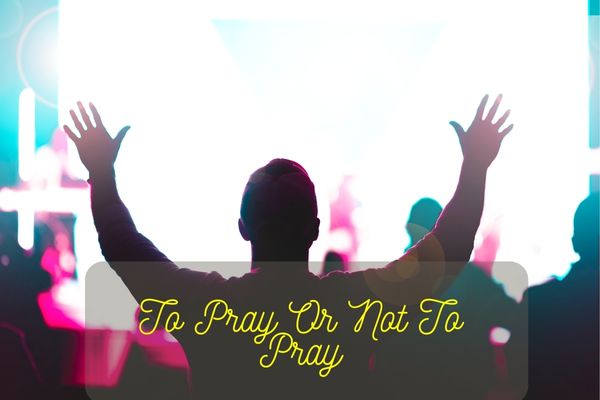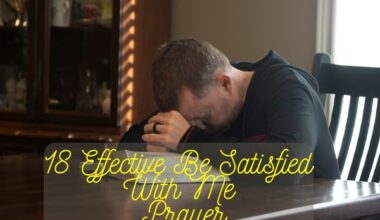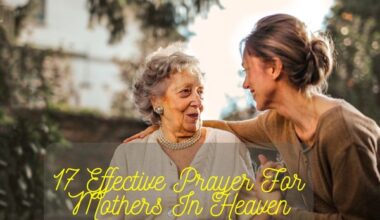Prayer stands as a cornerstone of human history, a practice embedded in our existence. To pray or not to pray mention of prayer sparks a myriad of emotions, beliefs, and reflections, as it has since time immemorial. It’s an exploration of our relationship with the divine, with ourselves, and with the collective energy of the universe.
Throughout history, prayers have been offered in moments of gratitude, desperation, celebration, and quiet contemplation. They’ve transcended cultural boundaries, traversed across faiths, and echoed through the corridors of time.
From the whispered invocations in sacred spaces to the silent contemplations in the solitude of one’s mind, prayer remains a universal phenomenon—a gesture that connects us to something greater than ourselves.
To Pray Or Not To Pray
Prayer holds immense personal significance for countless individuals. For believers, prayer is a direct line of communication with a higher power, providing a sense of comfort, guidance, and strength. The act of praying allows one to express gratitude, seek forgiveness, and request blessings. It provides solace during times of difficulty, offering a source of hope and encouragement.
Prayer has been shown to have positive effects on mental and emotional well-being, reducing stress, anxiety, and depression. By connecting with a higher power, individuals often find a sense of purpose and meaning in their lives.
Benefits of Prayer
Prayer offers numerous benefits that can positively impact our lives. Let’s explore some of these benefits:
1. Emotional Well-being
Prayer can provide emotional support and a sense of inner peace during challenging times. It allows individuals to express their fears, anxieties, and burdens, providing a source of comfort and relief.
2. Strengthening Faith and Spirituality
Engaging in prayer can deepen one’s faith and spirituality. It fosters a sense of connection with a higher power and helps individuals cultivate a closer relationship with their beliefs and values.
3. Developing Gratitude
Prayer encourages the practice of gratitude. By expressing thanks for blessings and acknowledging the positive aspects of life, individuals can cultivate a mindset of appreciation and contentment.
4. Building Resilience
Prayer can provide strength and resilience in times of adversity. It offers a sense of hope and encouragement, helping individuals cope with challenges and find the inner strength to navigate through difficult circumstances.
Controversies Surrounding Prayer
Despite its personal and perceived power, prayer is not without controversy. One of the key debates revolves around the inclusion of prayer in public spaces, such as schools or government institutions. Critics argue that public prayer violates the principle of separation between church and state, infringing upon the rights of those who do not share the same beliefs.
They contend that in a diverse society, public institutions should remain neutral and inclusive, refraining from endorsing or promoting any specific religious practice. On the other hand, proponents of public prayer argue that it is an expression of religious freedom and an important part of cultural heritage. They believe that prayer can foster a sense of community and moral values, contributing to the overall well-being of society.
The Efficacy of Prayer
Another contentious aspect of prayer revolves around its efficacy. Skeptics question whether prayer actually produces tangible results or if it merely serves as a placebo effect. Scientific studies investigating the effects of prayer on specific outcomes, such as healing or recovery from illness, have shown mixed results.
Some studies suggest a positive correlation between prayer and health outcomes, while others find no significant difference between those who pray and those who do not. The complexity of measuring the effects of prayer, including the subjective nature of faith and the presence of confounding variables, makes it challenging to draw definitive conclusions.
Finding a Balance
In the midst of the power and controversies surrounding prayer, finding a balance is crucial. Respect for individual beliefs and the principle of religious freedom should be upheld, allowing individuals to practice their faith in personal and private settings. However, in public spaces, a delicate balance should be struck to ensure inclusivity and avoid the imposition of religious practices on those who may not share the same beliefs. Creating spaces for interfaith dialogue and understanding can foster mutual respect and bridge divides.
Conclusion
The journey of whether to pray or not to pray is not merely a philosophical debate or a religious deliberation—it’s a deeply personal expedition. It intertwines the fibres of spirituality, introspection, and the human experience. In the realm of this eternal discourse, there’s no definitive answer that applies universally. Instead, there’s an invitation—an invitation to look into oneself, to explore beliefs, to connect with the unknown or the divine in a way that feels meaningful and authentic.
The decision to pray or not is, at its core, a choice born from individual convictions, experiences, and perceptions. It’s a reflection of our connection with the universe, with our inner selves, and with the forces that guide our lives. It’s an acknowledgement of the diverse ways in which we navigate our existence—a journey marked by questions, contemplations, and ultimately, a pursuit of inner peace and understanding.
Frequently Asked Questions
1. Can prayer change the outcome of events?
- While prayer can provide solace and inner peace, its ability to directly change external events is a subject of debate. Some believe in the power of prayer to influence outcomes, while others view it as a means of finding strength, guidance, and acceptance in the face of circumstances beyond our control.
2. Do prayers need to be formal, or can they be spontaneous?
- Prayers can take various forms and can be either formal or spontaneous. The important aspect is the sincerity and intention behind the prayer. Whether reciting traditional prayers or expressing personal thoughts and emotions, what matters most is the genuine connection and communication with the divine.
3. Can non-religious individuals benefit from prayer?
- Prayer is not limited to religious individuals. Even those who do not identify with a specific religious tradition can find value in prayer as a form of self-reflection, meditation, or expressing gratitude. It can serve as a means of connecting with one’s inner self and finding solace and peace.






